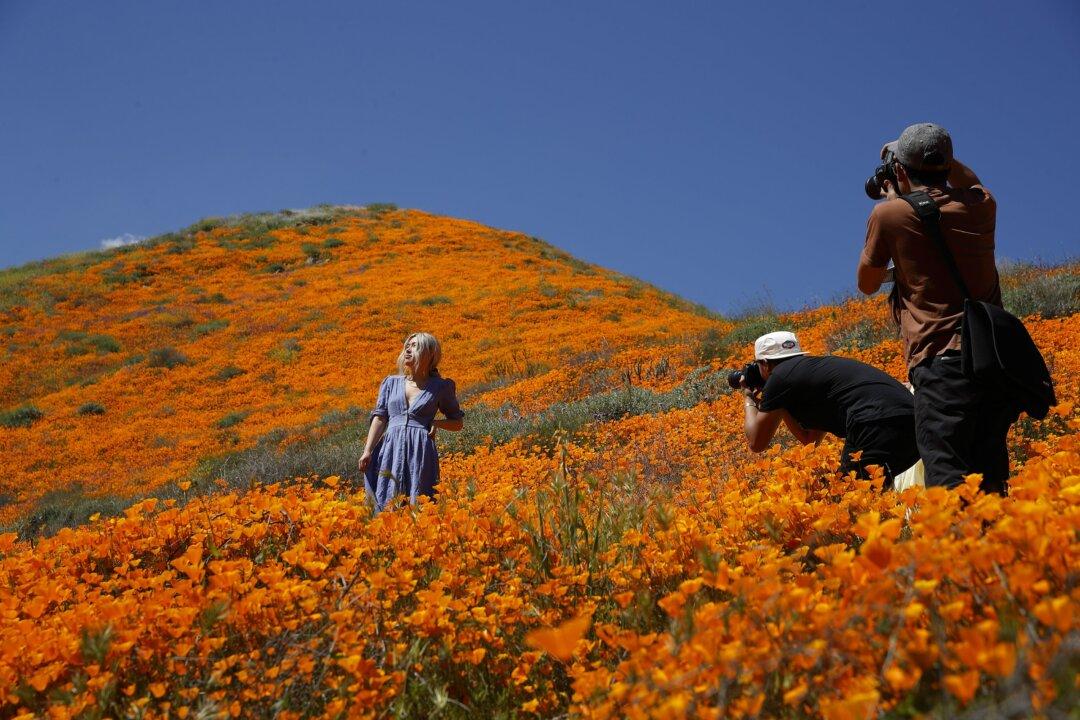LAKE ELSINORE, Calif.—Like Dorothy in the “Wizard of Oz,” the Southern California city of Lake Elsinore is being overwhelmed by the power of the poppies.
About 150,000 people over the weekend of March 16-17, flocked to see this year’s rain-fed flaming orange patches of poppies lighting up the hillsides near the city of about 60,000 residents, about a 90-minute drive from either San Diego or Los Angeles.





